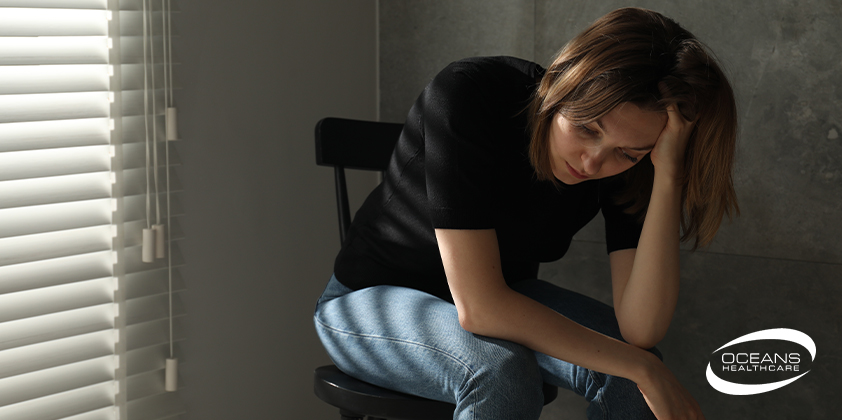Broussard, LA – Oceans Healthcare is a local behavioral health facility that is prepared to treat a multitude of serious mental health conditions, including bipolar disorder. The organization recently published an article that highlights the key differences between bipolar I and bipolar II.
Bipolar disorder is a chronic mood disorder that causes a person to experience both manic and depressive symptoms. This isn’t the same as the mood fluctuations a person would experience in daily life. The symptoms of bipolar disorder are intense and last for an extended period. The two most common forms of bipolar disorder are bipolar I and bipolar II.

People with bipolar I experience a manic episode that lasts for at least one week. Common symptoms include intense bouts of energy, little to no need for sleep, flight of ideas, elation or extreme excitement, and periods of irritation or frustration. Many people with bipolar I also experience depressive symptoms, although it’s not a requirement of the diagnosis.
“A manic episode is not always noticeable to the person experiencing it but is usually obvious to the people who know them well. To be considered a manic episode, your symptoms must be a marked change from your usual behavior. They must also cause significant dysfunction in social settings, at work, or school.
“In more severe cases, manic episodes can produce psychosis. If you experience psychosis, you’ll lose touch with reality. Many people with psychosis experience delusions, paranoia, and hallucinations. Psychosis is an immediate medical emergency, and if you or someone you love experiences it, you should get medical help immediately,” the article begins.
To be diagnosed with bipolar II, a full manic episode is not required. Instead, individuals will experience hypomanic symptoms, which aren’t as intense and only last for four days or less. Depression is the defining characteristic of bipolar II, and episodes last for at least two weeks.
“Bipolar depression is a term that refers to the low episodes that people with bipolar I and, primarily, bipolar II experience. According to the Diagnostic and Statistical Manual of Mental Disorders, Fifth Edition (DSM-5), you have to meet at least 5 of the following 9 criteria for your symptoms to amount to a major depressive episode:
“Feelings of hopelessness, emptiness, or intense sadness that are noticed either by you or those around you; loss of interest in most or all of the day (anhedonia); significant changes in weight, including dramatic weight loss or gain or changes in appetite; changes in sleep patterns, such as sleeping too much or not enough; thinking, moving, or talking so slowly that it’s noticeable to those around you; experiencing severe fatigue or a loss of energy; having trouble concentrating or making decisions; feeling excessive and/or unwarranted guilt; and having thoughts of suicide, including planning, ideation, and attempting,” the article continues.
There are quite a few similarities between the two conditions. People living with either bipolar I or bipolar II can experience what’s known as rapid cycling. During rapid cycling, someone experiences four or more symptom episodes in a single year. Many of the same therapies and medications are used to treat both bipolar I and II.
However, there are a few key differences between bipolar I and II that make them unique diagnoses.
“Mania vs. hypomania marks one of the distinct differences between the two types of bipolar. To receive a bipolar I diagnosis, you will have experienced a full manic episode. Some people with the condition also experience a hypomanic episode, but it isn’t a defining characteristic of the condition. If you’re living with bipolar II, you will not experience mania, but you will experience hypomania. Mania is more intense than hypomania and includes the possibility of psychosis, which hypomania does not. Manic episodes also last longer than hypomanic episodes and often require more specialized treatment,” the article concludes.
All Oceans Healthcare programs are overseen by a board-certified psychiatrist. The organization has its roots in geriatric care, giving staff the expertise they need to handle complex, high-acuity conditions, like bipolar disorder. They accept 24/7 referrals. To learn more about Oceans Healthcare, call (361) 371-8933.
###
For more information about Oceans Behavioral Hospital Broussard, contact the company here:
Oceans Behavioral Hospital Broussard
Dax Parker
(337) 839-9008
broussardinfo@oceanshealthcare.com
420 Albertson Pkwy
Broussard, LA 70518




